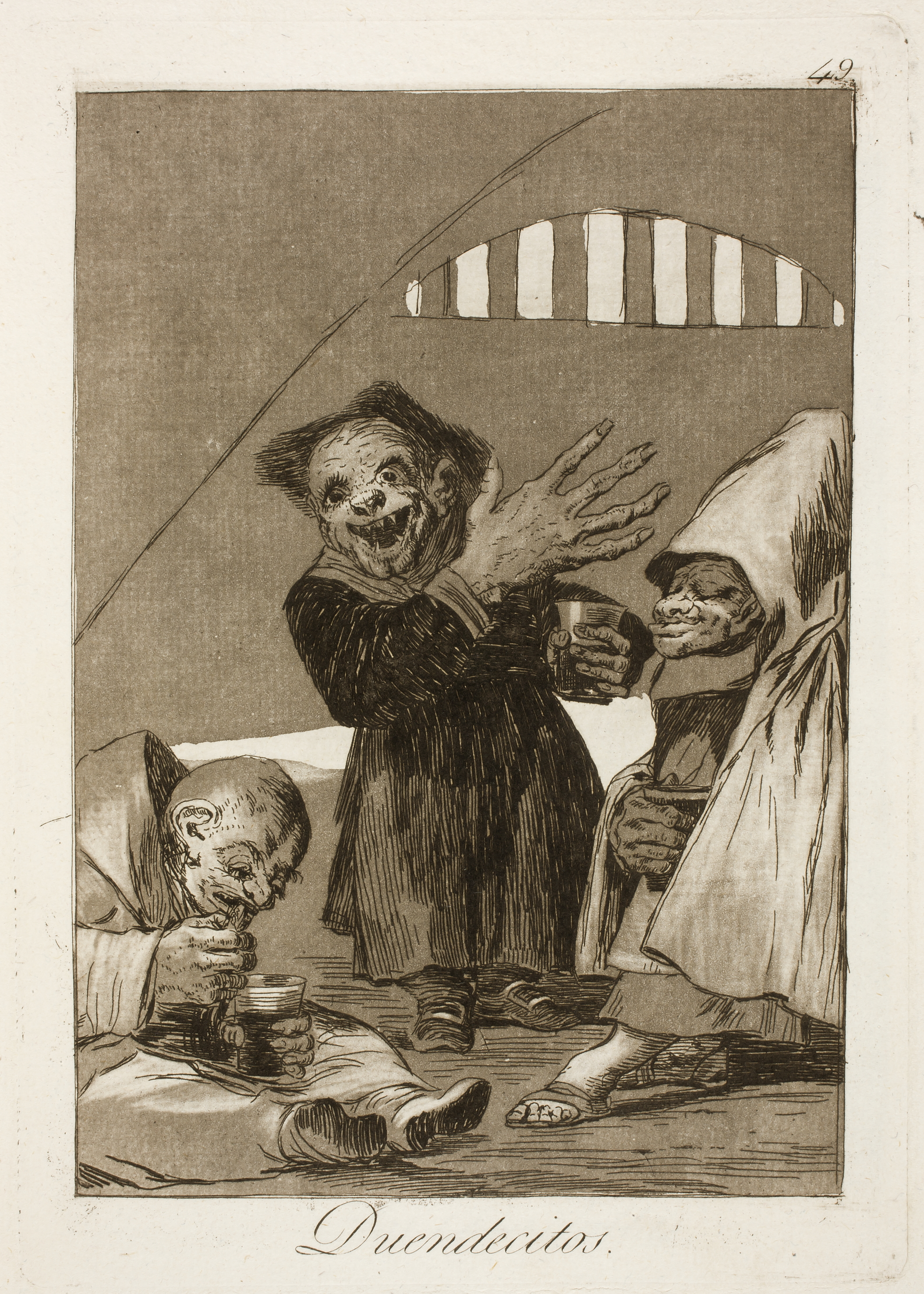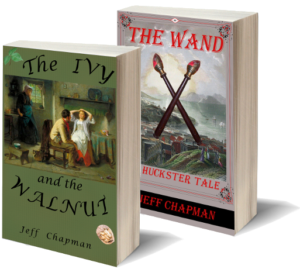
“Hobgoblins” from Francisco Goya’s
Los Caprichos (1799).
Goblins abound in fantasy literature, from Christina Rossetti’s Goblin Market to George MacDonald’s The Princess and the Goblin to J.R.R. Tolkien’s The Hobbit, but where does the word come from? And what is a goblin?
Goblins come in many shapes and sizes and temperaments, ranging from grotesquely evil to mischievous and annoying. Tolkien’s goblins, later rechristened orcs, lean in the evil direction while MacDonald’s goblins lean the other way. Goblins are typically small, ranging from a few inches to the stature of a dwarf. They’re not much to look at either. In some stories, they possess magical abilities. No matter their form or temperament, these ugly fairies are not good to have around.
I assumed the word had a Germanic or Norse origin but it’s antecedents are not so easily traced, which seems strangely appropriate for such a creature. One line dates the word’s first recorded usage to the fourteenth century and traces it to the old French word gobelin derived from Gobelinus, a spirit said to haunt Évreux, a region in Normandy in northern France. Another theory relates goblin to the German word kobold—meaning household goblin—derived from the Medieval Latin term cabalus from the Greek words kobalos—a rogue or knave—and kobaloi—the wicked spirits that rogues invoked. Kobold was also used by silver miners in the Harz Mountains in northern Germany to refer to rock containing arsenic and sulfur. The contaminants degraded the ore and made the miners sick.
The word hobgoblin dates from the 1520s, combining hob with goblin. Hob derives from Hobbe, a variant of Rob, which is a short name for Robin Goodfellow, a mischievous elf better known to Shakespeare fans as Puck. Hobgoblin might also mean the goblin of the hob. When fireplaces were used for cooking, a hob was a shelf at the back or side of a hearth to keep food and utensils warm. What goblin could resist making mischief with unguarded food?
Attribution: Francisco Goya [Public domain], via Wikimedia Commons.


How can any of us resist unguarded food?! Another fun weird word. 🙂